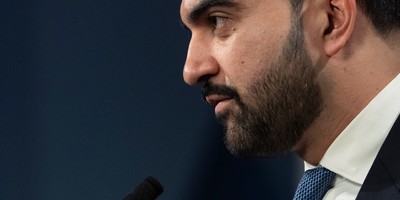The Labor Department’s seven-year effort to improve financial reporting and disclosure by unions could come to a screeching halt once President Bush leaves office.
Sen. Barack Obama’s support for ending federal oversight of the Teamsters is the clearest indication yet of how a Democratic administration would treat labor unions.
Both Obama and Sen. Hillary Clinton wooed the Teamsters in hopes of securing its coveted endorsement. But only Obama went so far as to say that government oversight had “run its course.” The union endorsed Obama in February.
Since then, Obama’s ties to Teamsters President James P. Hoffa have grown stronger. Hoffa has traveled with Obama on the campaign trail and acted as a surrogate on trade issues for the candidate.
History of Corruption
The International Brotherhood of Teamsters has a history of corruption problems dating back to 1959, when the Landrum-Griffith Act created many of the financial reporting and disclosure requirements in law today. Within years of the act’s passage, Hoffa’s father was sparring with then-U.S. Attorney General Robert F. Kennedy over union corruption.
But it wasn’t until 1992 that the Department of Justice took the unprecedented step of creating a three-member independent review board to help the Teamsters root out its mob influence. When the younger Hoffa became president in 1999, he made it a priority to end the government’s oversight.
The Wall Street Journal, which first reported Obama’s promise to the Teamsters, notes that the review board’s caseload has declined over the years. Still, many problems remain with local Teamsters outfits, according to the Labor Department’s union enforcement agency.
Recommended
In the last seven years, the Office of Labor-Management Standards has secured more than 30 convictions of Teamsters officials for crimes ranging from embezzlement and wire fraud to theft and falsifying union records.
Two former officers of Teamsters Local 743 in Illinois were convicted in March as part of a 14-count criminal complaint alleging conspiracy, mail fraud, theft and embezzlement. Another conviction in April involved a former bookkeeper charged with embezzling $140,000 from Houston’s Teamsters Local 19.
Increased Enforcement
These types of cases aren’t limited to the Teamsters. The Labor Department’s enforcement agency has secured 900 indictments and successfully prosecuted more than 850 individuals since 2001. During that time the office has a recouped more than $103 million for American workers.
This wasn’t always the case. The number of employees working for the Office of Labor-Management Standards fell from 392 in 1992 to just 260 in 2002 after years of cuts by the Clinton administration. Fewer employees meant fewer audits -- forcing the office to rely more heavily on unions to police themselves.
Since taking office, Bush has restored many of the positions cut under Clinton to boost auditing and enforcement. As of 2006, there were 384 employees working for the office.
The lean Clinton years could return, however. While other offices at Labor last year reaped budget increases from the Democratic-controlled Congress, the enforcement office saw its budget cut by $3 million.
And that wasn’t all. Congressional leaders and their Big Labor allies also tried to water down financial reporting requirements. A dispute arose last year over the revised LM-30 form that requires union bosses to “disclose possible conflicts between personal interests and the officer’s or employee’s duty to the union and its members.”
The Labor Department revised the rule to give the union rank-and-file more information about how their dues were spent. But union leaders such as John Sweeney of the AFL-CIO denounced the new reporting requirements as a “debilitating burden.”
With promises from Obama to ease union oversight, and endorsements from congressional Democrats for the Employee Free Choice Act (H.R. 800), better known as the card check bill, Big Labor is salivating at the prospect of a return to “one-party government” in Washington next year.

























Join the conversation as a VIP Member